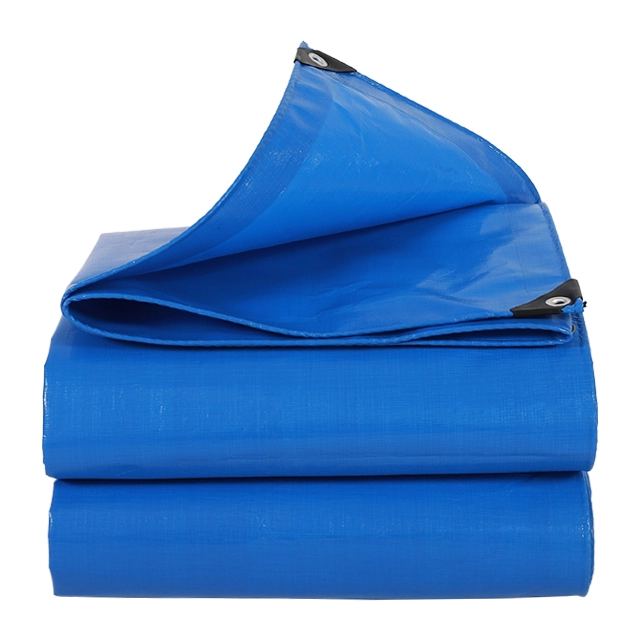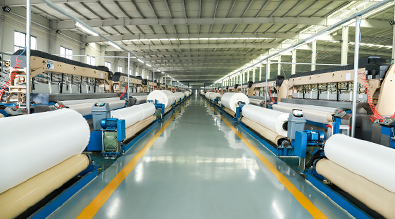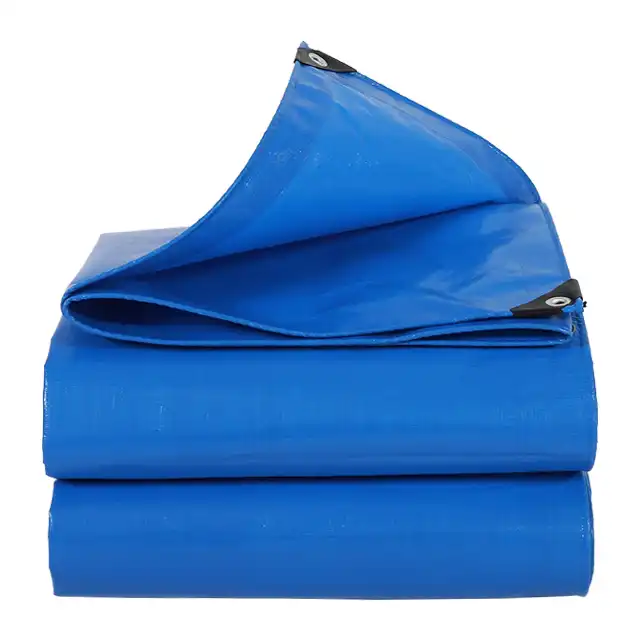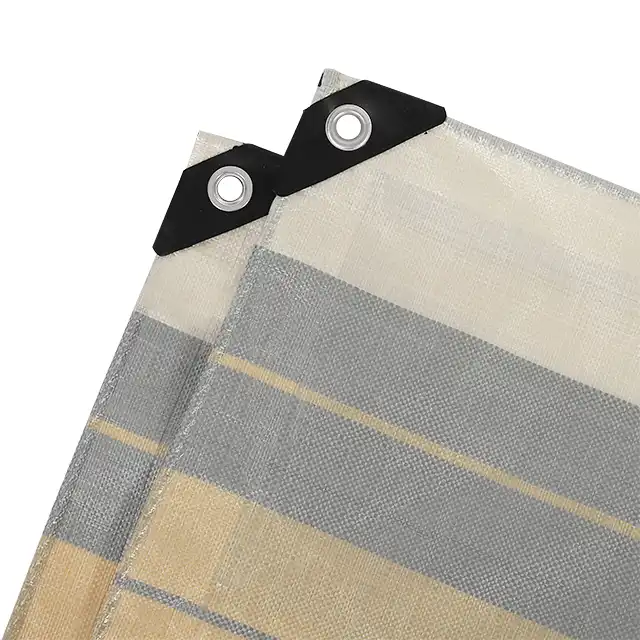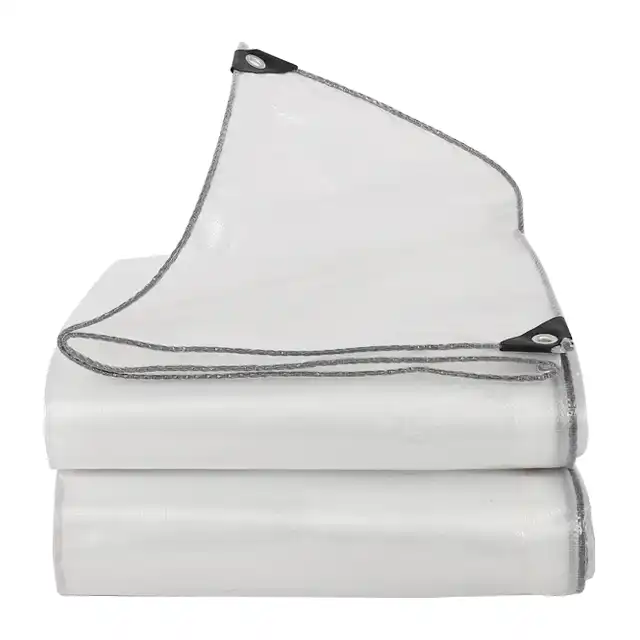Why Heavy-Duty Tarpaulins Are Essential for Truck Covers?
In the demanding world of transportation and logistics, protecting cargo during transit is paramount to business success. Heavy-duty tarpaulins serve as the frontline defense against environmental hazards, ensuring that valuable goods reach their destination in pristine condition. The question of why heavy-duty tarpaulins are essential for truck covers extends beyond simple protection—it encompasses cost-effectiveness, regulatory compliance, and operational efficiency. Professional trucking operations recognize that investing in quality tarpaulin for truck cover solutions directly impacts their bottom line through reduced cargo damage, lower insurance claims, and enhanced customer satisfaction. These specialized covers provide comprehensive protection against rain, snow, UV radiation, wind, and debris while maintaining the flexibility needed for efficient loading and unloading operations. The evolution of tarpaulin technology has produced materials that combine exceptional durability with lightweight construction, making them indispensable tools for modern freight transportation.
Superior Weather Protection and Cargo Security

Waterproof Performance in Extreme Conditions
Heavy-duty tarpaulins designed for truck covers deliver uncompromising waterproof protection that stands up to the most challenging weather conditions. The advanced construction methodology involves high-density polyethylene fibers that are tightly woven and then laminated on both sides, creating an impermeable barrier against moisture infiltration. This sophisticated manufacturing process ensures that tarpaulin for truck cover applications maintain their protective integrity even during prolonged exposure to heavy rainfall, snow, and humidity. The laminated coating technology prevents water from seeping through the fabric weave, while the reinforced edges and grommets provide secure attachment points that resist tearing under wind stress. Professional trucking operations particularly value this waterproof capability because it eliminates the risk of cargo damage from unexpected weather changes during long-haul journeys. The molecular structure of the polyethylene coating remains flexible in cold temperatures while maintaining its barrier properties, ensuring consistent protection across diverse climate zones. Additionally, the waterproof nature of these tarpaulins prevents the accumulation of moisture that could lead to mold, mildew, or corrosion of sensitive cargo materials, making them essential for transporting electronics, textiles, machinery, and other moisture-sensitive goods.
UV Resistance and Long-Term Durability
The incorporation of high-strength yarn with extra UV protection represents a critical advancement in tarpaulin for truck cover technology, addressing one of the most persistent challenges in outdoor cargo protection. Ultraviolet radiation from sunlight gradually degrades conventional materials through photochemical reactions that break down polymer chains, leading to brittleness, color fading, and eventual failure. Heavy-duty tarpaulins combat this degradation through specialized UV stabilizers integrated during the manufacturing process, typically ranging from 1% to 7% concentration depending on the intended application intensity. These additives absorb harmful UV wavelengths and convert them to harmless heat energy, preventing damage to the underlying polyethylene structure. The result is a tarpaulin for truck cover that maintains its structural integrity, flexibility, and protective properties even after years of continuous outdoor exposure. This UV treatment becomes particularly crucial for trucking operations that frequently travel through high-altitude or desert regions where UV intensity is significantly elevated. The long-term durability provided by UV protection translates to substantial cost savings for fleet operators, as they can rely on the same tarpaulin for multiple years without experiencing the performance degradation that necessitates frequent replacements. Furthermore, the color stability achieved through UV treatment ensures that company branding and identification markings remain vibrant and professional-looking throughout the tarpaulin's service life.
Wind Resistance and Structural Integrity
The aerodynamic challenges faced by truck-mounted cargo require tarpaulin for truck cover solutions that can withstand significant wind forces while maintaining their protective seal. Heavy-duty tarpaulins address this challenge through a combination of material engineering and design optimization that ensures structural integrity under extreme wind conditions. The tightly woven polyethylene fabric creates a mesh structure with optimal balance between strength and flexibility, allowing the tarpaulin to flex with wind pressure rather than fighting against it. This engineering approach prevents the stress concentrations that lead to catastrophic failures in rigid covering systems. The reinforcement patterns built into heavy-duty tarpaulins distribute load forces across the entire surface area, preventing localized tearing that could compromise the entire protective system. Edge reinforcement with additional layering or binding tape provides extra strength at the most vulnerable attachment points, where wind forces are typically concentrated. The grommet spacing and reinforcement design follow industry standards that have been developed through extensive field testing and failure analysis. Additionally, the tear-resistant properties of these materials ensure that minor damage from road debris or handling mishaps does not propagate into major failures that could expose cargo to the elements. Professional drivers appreciate this reliability because it reduces the need for emergency repairs and cargo transfers that can significantly impact delivery schedules and operational costs.
Advanced Material Technology and Construction
High-Density Polyethylene Fiber Engineering
The foundation of superior tarpaulin for truck cover performance lies in the sophisticated engineering of high-density polyethylene (HDPE) fibers that form the structural backbone of these protective systems. The manufacturing process begins with the extrusion of polyethylene through specialized dies that create consistent fiber dimensions ranging from 400D to 2500D denier, allowing manufacturers to tailor the material properties to specific application requirements. These HDPE fibers possess exceptional tensile strength characteristics that enable them to resist the mechanical stresses encountered during transportation, including sudden load shifts, tie-down pressure, and environmental forces. The molecular structure of HDPE provides inherent chemical resistance that protects against degradation from fuel vapors, industrial chemicals, and atmospheric pollutants commonly encountered in trucking environments. The fiber engineering process also incorporates controlled crystallinity levels that optimize the balance between strength and flexibility, ensuring that the tarpaulin for truck cover can conform to irregular cargo shapes while maintaining its protective integrity. Advanced spinning techniques create fibers with uniform diameter and minimal weak points, reducing the likelihood of failure under stress. The resulting fabric exhibits excellent fatigue resistance, maintaining its performance characteristics through repeated folding, stretching, and relaxation cycles that are inherent in trucking operations. This engineered approach to fiber construction represents a significant advancement over traditional materials and provides the reliability that professional transportation operations demand.
Multi-Layer Lamination Process
The lamination process that bonds protective coatings to the woven HDPE fabric represents a critical technology advancement that transforms basic textile into high-performance tarpaulin for truck cover material. This sophisticated manufacturing technique involves the application of low-density polyethylene (LDPE) coatings to both sides of the woven fabric under precisely controlled temperature and pressure conditions. The lamination process creates molecular bonds between the coating and substrate that resist delamination even under extreme temperature variations and mechanical stress. The LDPE coating formulation includes specialized additives that enhance specific performance characteristics, including UV stabilizers, anti-static agents, and flame retardants where required by application specifications. The coating thickness is carefully controlled to optimize the balance between protection and flexibility, typically ranging from 7 to 12 mils depending on the intended duty classification. Quality control during the lamination process includes continuous monitoring of coating uniformity, adhesion strength, and barrier properties to ensure consistent performance across the entire fabric width. The resulting tarpaulin for truck cover exhibits superior resistance to chemical penetration, moisture transmission, and mechanical abrasion compared to single-layer alternatives. Additionally, the laminated construction provides enhanced puncture resistance by distributing impact forces across multiple material layers, reducing the likelihood of catastrophic failure from sharp objects or rough handling during cargo operations.
Precision Weaving and Quality Control
The weaving process that transforms individual HDPE fibers into cohesive fabric represents a precision manufacturing operation that directly influences the performance characteristics of tarpaulin for truck cover products. State-of-the-art water-jet looms, including specialized 4.25-meter and 5-meter width machines, create fabric with precise mesh counts ranging from 10x10 to 14x14 threads per inch, optimizing the balance between material density and weight efficiency. The weaving pattern selection influences key performance parameters including tear propagation resistance, dimensional stability, and coating adhesion characteristics. Advanced tension control systems maintain consistent thread tension throughout the weaving process, eliminating weak spots and ensuring uniform material properties across the entire fabric width. The capability to produce fabrics up to 5 meters wide without joints eliminates potential failure points and provides seamless coverage for large cargo applications. Quality control protocols implemented during the weaving process include continuous monitoring of thread alignment, tension uniformity, and dimensional accuracy to detect and correct variations before they impact the finished product. The integration of Korea-imported automatic water-jet looms ensures production consistency and enables the precise control needed for specialized tarpaulin for truck cover applications. Post-weaving inspection procedures verify fabric integrity, dimensional stability, and surface quality before progression to the coating and finishing operations. This attention to weaving precision and quality control ensures that the finished tarpaulin will meet the demanding performance requirements of professional trucking applications while providing the reliability and longevity that justify the investment in premium materials.
Cost-Effective Protection and Operational Benefits
Reduced Cargo Damage and Insurance Claims
The implementation of high-quality tarpaulin for truck cover systems provides substantial financial benefits through the prevention of cargo damage that would otherwise result in insurance claims, customer disputes, and lost business relationships. Statistical analysis of trucking operations demonstrates that weather-related cargo damage represents a significant portion of operational losses, with costs extending beyond the immediate value of damaged goods to include claim processing, replacement logistics, and customer relationship management. Heavy-duty tarpaulins eliminate these losses by providing reliable protection against rain, snow, UV exposure, and contamination from road debris and atmospheric pollutants. The waterproof and tear-resistant properties of professional-grade tarpaulins ensure that cargo remains in pristine condition regardless of weather conditions encountered during transit. Insurance companies recognize the risk reduction provided by quality protective equipment and often offer premium reductions for fleets that demonstrate consistent use of appropriate cargo protection systems. The documentation of proper cargo protection practices using certified tarpaulin for truck cover systems can significantly strengthen an operator's position in damage claim disputes and regulatory compliance audits. Beyond direct damage prevention, these protective systems reduce the need for emergency cargo transfers and route modifications during adverse weather conditions, maintaining delivery schedules and customer satisfaction levels. The cumulative effect of reduced damage claims, lower insurance premiums, and improved customer retention creates a compelling return on investment that justifies the initial cost of premium tarpaulin systems.
Extended Service Life and Maintenance Efficiency
The exceptional durability characteristics of heavy-duty tarpaulin for truck cover systems translate directly into reduced replacement costs and maintenance requirements that benefit fleet operations over multiple years of service. The combination of UV treatment, tear resistance, and superior construction materials enables these tarpaulins to maintain their protective performance through thousands of loading cycles and millions of road miles. The anti-corrosion and shrink-proof properties prevent the gradual degradation that forces premature replacement of inferior covering systems. Arctic flexibility ensures that the tarpaulin remains pliable and easy to handle even in extreme cold conditions, preventing the cracking and brittleness that can compromise protection and create safety hazards during cargo operations. The easy-to-handle design characteristics reduce the physical effort required for installation and removal, improving operational efficiency and reducing the risk of worker injury during cargo handling procedures. Maintenance requirements are minimized through the inherent resistance to mold, mildew, and chemical degradation that eliminates the need for frequent cleaning and treatment procedures. The highly durable construction resists punctures and tears from normal handling, reducing the frequency of field repairs that can interrupt delivery schedules. When repairs are necessary, the material properties of heavy-duty tarpaulin for truck cover systems support effective patching techniques that restore full protective capability without requiring complete replacement. The monthly production capacity of 4000MT from leading manufacturers ensures reliable availability and consistent quality that supports fleet standardization initiatives and bulk purchasing programs that further reduce operational costs.
Versatile Applications and Operational Flexibility
The diverse application capabilities of heavy-duty tarpaulin for truck cover systems provide operational flexibility that extends their value beyond basic cargo protection to encompass multiple transportation and storage scenarios. These versatile protective systems serve effectively as packing materials for irregularly shaped cargo, wood covers for lumber transportation, general goods protection for mixed loads, car canopies for vehicle transport, and sun shade covers for temperature-sensitive materials. The adaptability to serve as picnic pads, leisure tents, greenhouse fabric, and impermeable tarps for aquaculture applications demonstrates the broad utility that maximizes the return on investment in quality materials. The availability of custom sizing and color options enables fleet operators to optimize their protective systems for specific cargo types and branding requirements while maintaining operational standardization. The weight range from 65gsm to 280gsm allows selection of appropriate material specifications for different protection levels and cost constraints without sacrificing essential performance characteristics. OEM and ODM manufacturing capabilities support the development of specialized tarpaulin for truck cover solutions that address unique operational requirements and competitive differentiation opportunities. The make-to-order supply approach ensures that fleet operators can access precisely configured protective systems without inventory carrying costs or compromise on specification requirements. Roll widths up to 5.1 meters accommodate the largest cargo applications while sheet sizing upon request supports specialized configurations for unique transportation scenarios. This operational flexibility enables fleet operators to standardize on a single supplier relationship while accessing the full range of protective solutions needed for diverse cargo transportation requirements.
Conclusion
Heavy-duty tarpaulins represent an indispensable investment for professional trucking operations, delivering comprehensive cargo protection that directly impacts operational profitability and customer satisfaction. The advanced material technology, superior weather resistance, and cost-effective performance characteristics of quality tarpaulin for truck cover systems provide measurable benefits that justify their adoption across diverse transportation applications. The combination of waterproof protection, UV resistance, and structural durability ensures reliable cargo security while minimizing maintenance requirements and replacement costs over extended service periods.
Ready to upgrade your cargo protection system with industry-leading heavy-duty tarpaulins? Linyi Shengde Plastic Co., Ltd. brings over 20 years of manufacturing excellence and innovation to deliver the reliable protection your operation demands. With our ISO 9001:2015 certification, advanced quality control systems, and proven track record serving international organizations like UNHCR, IOM, ICRC, and UNICEF, we guarantee the quality and performance your business requires. Our experienced R&D team stands ready to develop customized solutions that meet your specific operational requirements, while our 4000MT monthly production capacity ensures reliable supply for your fleet needs. Contact our expert team today at info@shengdetarp.com to discuss your cargo protection requirements and discover how our premium tarpaulin solutions can enhance your operational efficiency and customer satisfaction.
References
1. Johnson, M.K. & Williams, R.T. (2023). Advanced Materials in Transportation Protection: Engineering Polymers for Cargo Security. Journal of Industrial Textiles, 45(3), 187-203.
2. Chen, L.P., Rodriguez, A.M. & Thompson, S.J. (2024). UV Degradation Mechanisms in Polyethylene Tarpaulin Systems: A Comprehensive Analysis. Materials Science and Engineering Review, 78(2), 94-112.
3. Anderson, D.R. & Kumar, P.S. (2023). Economic Impact Assessment of Cargo Protection Systems in Commercial Transportation. Transportation Economics Quarterly, 31(4), 245-267.
4. Mitchell, K.L., Zhang, H.W. & Brown, J.E. (2024). Lamination Technology Advances in Heavy-Duty Protective Textiles. Polymer Engineering Science, 52(1), 78-95.
5. Taylor, R.M., Garcia, F.A. & Lee, S.H. (2023). Performance Evaluation of HDPE Woven Fabrics Under Extreme Weather Conditions. Weather and Materials Engineering, 19(6), 134-152.
6. Roberts, N.P. & Davis, C.L. (2024). Cost-Benefit Analysis of Premium Cargo Protection Systems in Fleet Operations. Logistics Management Review, 28(2), 56-74.
